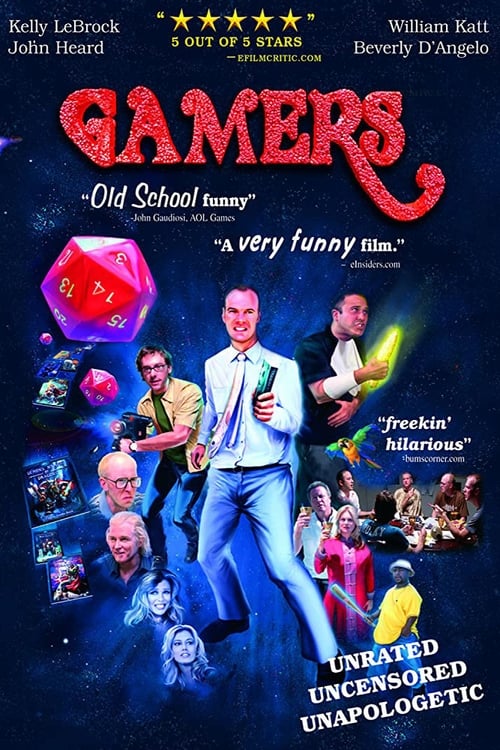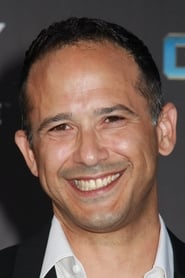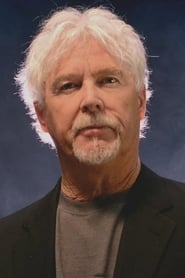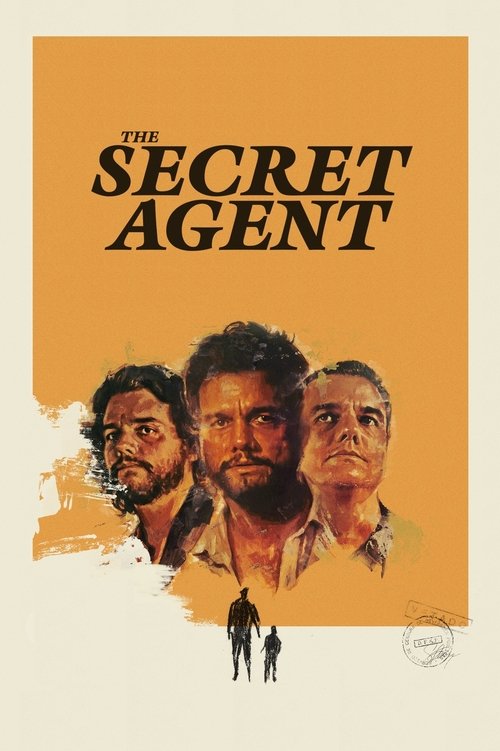
Ask Your Own Question
What is the plot?
The camera flickers to life, grainy and handheld, as a voiceover begins, dry and self-deprecating: "With my parents… it's just temporary… 'til they die." The words hang in the air, a dark joke that sets the tone for what follows. We are plunged into the world of four friends--Kevin Sherwood, Kevin Kirkpatrick, Scott Allen Rinker, and Joe Nieves--whose lives are defined by the awkward, often absurd, intersection of adulthood and arrested development. They are gamers, obsessed with a tabletop role-playing game called Demons, Nymphs, and Dragons (DND), a Dungeons & Dragons-inspired fantasy world that offers them escape from their real-world failures.
The film unfolds as a mockumentary, with interviews, fly-on-the-wall footage, and the occasional fourth-wall break. The opening scenes introduce each character in their natural habitat: Kevin Sherwood, wiry and intense, is seen rolling dice in his cluttered bedroom, surrounded by stacks of rulebooks and character sheets. Kevin Kirkpatrick, more laid-back but no less committed, is shown at his parents' kitchen table, arguing with his mother about his lack of a "real job." Scott Allen Rinker, the group's strategist, is captured in a dimly lit basement, meticulously painting miniature figurines. Joe Nieves, the wildcard, is introduced in a montage of failed job interviews, each more humiliating than the last.
Their lives are a series of small indignities. They work dead-end jobs--Kevin at a call center, Scott at a video store, Joe at a fast-food restaurant, and Kevin Kirkpatrick as a janitor. Their homes are filled with the detritus of their hobbies: posters of fantasy landscapes, shelves lined with dice, and the ever-present smell of stale pizza. The camera lingers on their parents, bemused and exasperated, as the friends retreat into their fantasy world every evening, gathering in basements and living rooms to play DND.
The central premise of the film is their decision to attempt to set the world record for the longest continuous session of DND. The record stands at 74,558 hours--a number that seems impossible, but the friends are undeterred. "We're not just playing for fun," Kevin says in an interview, his eyes gleaming with a mix of determination and desperation. "We're playing for legacy. For history." The others nod, their faces a mixture of excitement and fear.
The planning begins in earnest. They map out shifts, ration food, and prepare for the marathon ahead. The camera captures their preparations: Scott meticulously organizing snacks, Joe testing the durability of their dice, Kevin Kirkpatrick arguing with his parents about the noise. The mockumentary style allows for intimate moments--Kevin Sherwood confiding in the camera about his fear of failure, Scott admitting he's never had a girlfriend, Joe joking that he'd rather die in a dungeon than in a cubicle.
The record attempt begins on a Friday evening, the friends gathering in Scott's basement. The room is transformed into a gaming sanctuary, with candles, maps, and a mountain of snacks. The camera pans over their faces as they roll the first dice, the sound echoing in the silence. "Let the adventure begin," Kevin says, and the game is underway.
The hours blur into days. The friends take turns sleeping, eating, and gaming, their lives reduced to a cycle of dice rolls and character sheets. The mockumentary captures their exhaustion, their arguments, and their moments of camaraderie. Kevin Sherwood becomes increasingly obsessed, his eyes bloodshot, his hands trembling as he rolls the dice. Kevin Kirkpatrick tries to maintain a sense of humor, cracking jokes about their parents and their jobs. Scott Allen Rinker becomes the group's anchor, mediating disputes and keeping everyone focused. Joe Nieves, ever the wildcard, injects chaos, challenging the rules and pushing the boundaries of the game.
As the days pass, tensions rise. The friends begin to crack under the strain. Kevin Sherwood accuses Scott of cheating, their argument escalating into a shouting match that ends with Scott storming out of the room. Kevin Kirkpatrick tries to mediate, but his own frustration boils over, and he snaps at Joe for his constant rule-breaking. Joe, in turn, lashes out, accusing the others of being too serious, too obsessed. The camera captures their raw emotions, the cracks in their friendship widening with each passing hour.
The turning point comes on the third day, when the friends receive a visit from Gordon's parents--John Heard and Beverly D'Angelo. They arrive with a mix of concern and amusement, bringing food and offering words of encouragement. "You boys are crazy," Gordon's mom says, shaking her head. "But I guess that's what makes you special." The visit is a brief respite, a reminder of the world outside their game. The friends laugh, eat, and for a moment, the tension eases.
But the respite is short-lived. As the record attempt continues, the friends' physical and mental states deteriorate. Kevin Sherwood becomes increasingly paranoid, convinced that the game is real, that the dice are controlling their lives. Scott Allen Rinker begins to question the point of their obsession, wondering if they're just wasting their time. Kevin Kirkpatrick, ever the pragmatist, starts to think about quitting, about returning to the real world. Joe Nieves, however, remains committed, his enthusiasm undimmed.
The climax of the film comes on the seventh day, when the friends are just hours away from breaking the record. The tension is palpable, the air thick with exhaustion and anticipation. The camera captures their faces, each etched with a mixture of hope and despair. Kevin Sherwood rolls the dice, his hands trembling. The result is a critical success, and the friends erupt in cheers, their voices hoarse from days of shouting. They've done it--they've broken the record.
But the victory is bittersweet. As the friends celebrate, the camera lingers on their faces, capturing the emptiness behind their smiles. They've achieved their goal, but at what cost? The mockumentary style allows for a series of interviews, each friend reflecting on their journey. Kevin Sherwood admits that the game was a way to escape his failures, to feel like a hero in a world where he was anything but. Scott Allen Rinker confesses that he's never felt truly alive until now, but wonders if it was worth it. Kevin Kirkpatrick jokes that he'll never do it again, but the camera catches a flicker of regret in his eyes. Joe Nieves, ever the optimist, says he'd do it all over again, that the adventure was worth every moment.
The final scenes show the friends returning to their real lives, their basements and living rooms once again filled with the detritus of their hobbies. The camera captures their parents, bemused and exasperated, as the friends retreat into their fantasy world. The mockumentary concludes with a series of interviews, each friend reflecting on their journey and the impact of their gaming obsession on their lives. The film ends on a note of camaraderie and achievement, with the friends celebrating their success in setting the world record.
There are no deaths in the film, no major confrontations or fights. The story is one of personal growth and the enduring bond of friendship, captured through the lens of a mockumentary. The friends live, their lives forever changed by their adventure, their bond strengthened by their shared passion for gaming. The final shot is of the friends gathered around a table, rolling dice, their faces lit by the glow of candles, the sound of their laughter echoing in the silence.
What is the ending?
In the ending of the movie "Gamers," the main characters face the consequences of their actions in the virtual world as they navigate their relationships and personal growth. The film concludes with a sense of resolution for the characters, highlighting their development and the impact of their gaming experiences on their real lives.
As the climax unfolds, the characters find themselves in a high-stakes gaming tournament. Tensions rise as they confront their fears and insecurities, ultimately leading to a showdown that tests their skills and teamwork. The outcome of the tournament serves as a catalyst for change, prompting each character to reflect on their priorities and relationships.
In the final scenes, the characters emerge from the tournament with newfound clarity. They reconcile their differences, strengthen their friendships, and embrace their identities beyond the gaming world. The film closes on a hopeful note, suggesting that while gaming can be an escape, it also has the power to bring people together and foster personal growth.
As the final act of "Gamers" unfolds, the atmosphere is charged with anticipation. The characters, having navigated their individual arcs throughout the film, are now poised to face the ultimate challenge: a high-stakes gaming tournament that will determine their fates.
Scene 1: The tournament venue is bustling with energy. Bright lights flash, and the sounds of excited chatter fill the air. The main characters--each with their unique strengths and weaknesses--gather backstage, their expressions a mix of determination and anxiety. They exchange glances, silently acknowledging the journey that has brought them to this moment. The stakes are high, not just for the tournament but for their friendships and personal growth.
Scene 2: As the tournament begins, the characters take their positions, each one embodying their gaming personas. The screen displays their avatars, vibrant and full of life, contrasting with the tension in the room. The first round is intense, filled with strategic maneuvers and unexpected challenges. The characters communicate through headsets, their voices a blend of encouragement and urgency. They rely on each other, showcasing the teamwork that has developed over the course of the film.
Scene 3: Midway through the tournament, a critical moment arises. One character, who has struggled with self-doubt, faces a particularly daunting opponent. The pressure mounts, and the character hesitates, recalling past failures. However, the support of their teammates breaks through the fear. A heartfelt exchange occurs, reminding them of their growth and the importance of believing in oneself. This moment of vulnerability strengthens their bond, and the character finds the courage to push forward.
Scene 4: As the tournament progresses, the characters encounter various obstacles, both in-game and within themselves. They confront their insecurities, past grievances, and the reasons they turned to gaming in the first place. Each challenge serves as a metaphor for their real-life struggles, and they begin to realize that their experiences in the game mirror their personal journeys.
Scene 5: The final round approaches, and the tension is palpable. The characters are exhausted but resolute. They strategize one last time, drawing on everything they have learned about each other and themselves. The screen displays the countdown, and as the final match begins, the stakes feel higher than ever. The characters fight not just for victory but for their friendships and the growth they have achieved together.
Scene 6: In a nail-biting climax, the characters execute their plan flawlessly, showcasing their skills and teamwork. The crowd erupts in cheers as they secure a hard-fought victory. The moment is exhilarating, but it is also a turning point. As they celebrate, they realize that the tournament was never just about winning; it was about the connections they forged and the personal growth they experienced along the way.
Scene 7: In the aftermath of the tournament, the characters gather to reflect on their journey. They share their thoughts and feelings, acknowledging the challenges they faced both in the game and in their lives. Each character expresses gratitude for the support they received from one another, solidifying their friendships. They discuss their plans for the future, recognizing that while gaming will always be a part of their lives, it is not the only aspect that defines them.
Scene 8: The film concludes with a montage of the characters moving forward. They are seen engaging in various activities outside of gaming, exploring new interests, and deepening their relationships. The final shot captures them together, laughing and enjoying each other's company, a testament to the growth they have achieved. The screen fades to black, leaving the audience with a sense of hope and the understanding that while gaming can be an escape, it also has the power to bring people together and foster personal growth.
Is there a post-credit scene?
In the movie "Gamers" produced in 2006, there is no post-credit scene. The film concludes without any additional content or scenes after the credits roll. The story wraps up with the main characters reflecting on their experiences and the lessons learned throughout their gaming adventures, leaving the audience with a sense of closure.
What challenges do the main characters face in the gaming tournament?
In 'Gamers', the main characters face a series of escalating challenges during the gaming tournament, including intense competition from rival teams, personal conflicts among themselves, and the pressure of high expectations. Each character must confront their own insecurities and fears, such as the fear of failure and the desire for acceptance, which complicates their teamwork and strategy.
How does the character of 'The Kid' evolve throughout the film?
'The Kid', initially portrayed as a shy and socially awkward gamer, undergoes significant character development throughout 'Gamers'. As the story progresses, he learns to embrace his skills and gains confidence through his interactions with teammates. His journey reflects a transformation from isolation to camaraderie, culminating in a pivotal moment where he steps up to lead the team during a critical match.
What role does the character 'The Veteran' play in the team dynamics?
'The Veteran' serves as both a mentor and a source of tension within the team. His extensive experience in gaming brings valuable strategies to the group, but his overbearing nature often clashes with the younger players' perspectives. This conflict highlights the generational divide in gaming culture and ultimately leads to moments of growth for both 'The Veteran' and the team as they learn to balance respect for experience with the need for innovation.
How do the personal lives of the characters impact their performance in the tournament?
The personal lives of the characters significantly impact their performance in the tournament. For instance, one character struggles with family expectations that distract him during matches, while another deals with a romantic relationship that causes emotional turmoil. These personal issues create tension and affect their focus, leading to both setbacks and breakthroughs as they navigate their dual lives as gamers and individuals.
What is the significance of the final match in the tournament for the characters?
The final match in the tournament serves as a culmination of the characters' growth and struggles throughout 'Gamers'. It is not just a test of their gaming skills but also a moment of self-discovery and unity. Each character confronts their fears and insecurities, and the outcome of the match becomes a reflection of their journey together, emphasizing themes of friendship, perseverance, and the importance of believing in oneself.
Is this family friendly?
The movie "Gamers," produced in 2006, is primarily a comedy that revolves around the world of online gaming and the interactions between gamers. While it has humorous elements, there are several aspects that may be considered objectionable or upsetting for children or sensitive viewers:
-
Mature Themes: The film explores themes of competition, obsession, and the impact of gaming on personal relationships, which may not be suitable for younger audiences.
-
Language: There are instances of strong language and crude humor that may not be appropriate for children.
-
Violence: Some scenes depict video game violence, which, while animated and part of the gaming context, may be unsettling for younger viewers.
-
Adult Situations: The film includes references to adult situations and relationships that may not be suitable for a family audience.
-
Social Dynamics: The portrayal of certain social interactions and conflicts among characters may touch on bullying or exclusion, which could be upsetting for sensitive viewers.
Overall, while "Gamers" is a comedic take on gaming culture, its content may not be considered family-friendly due to these elements.
























